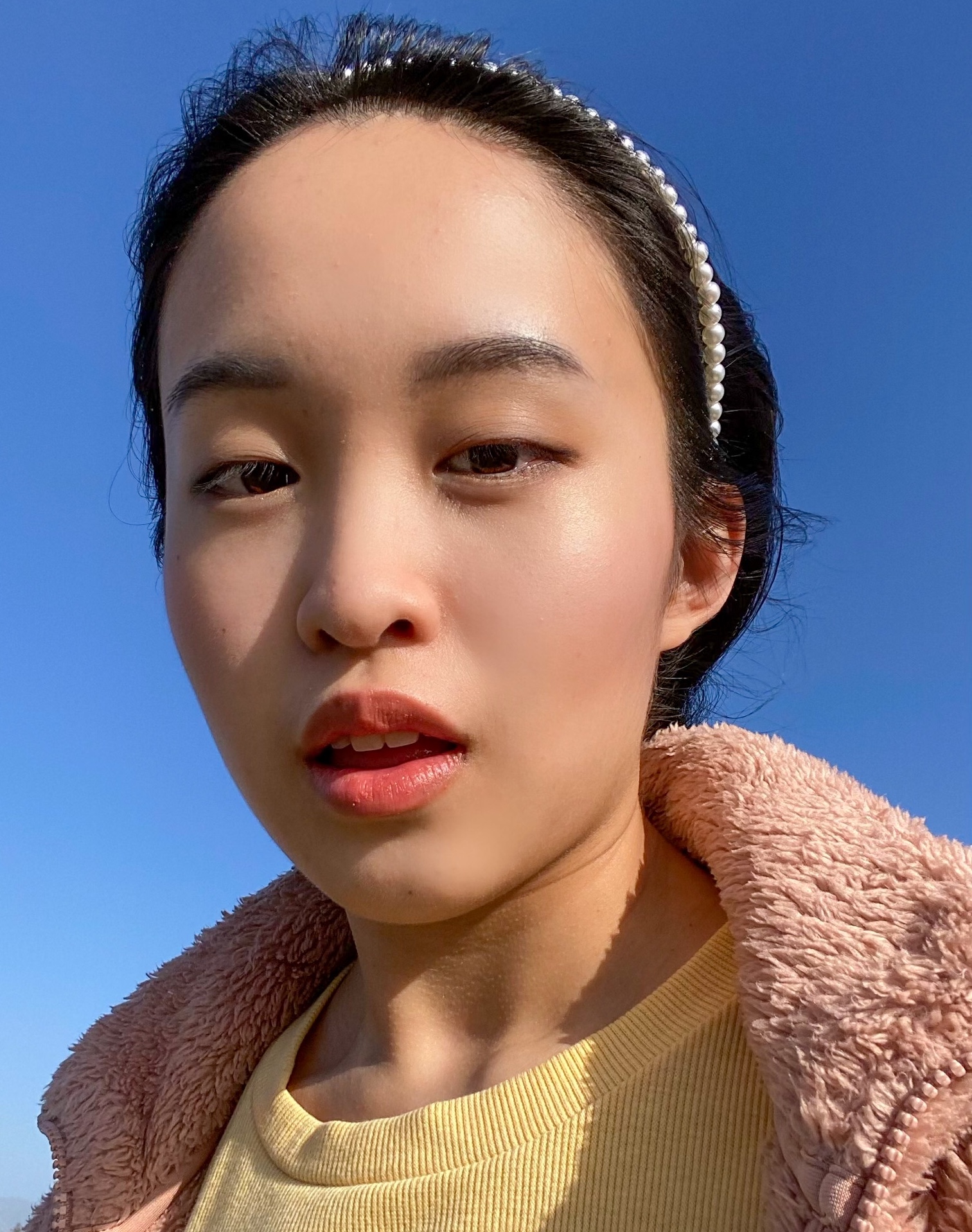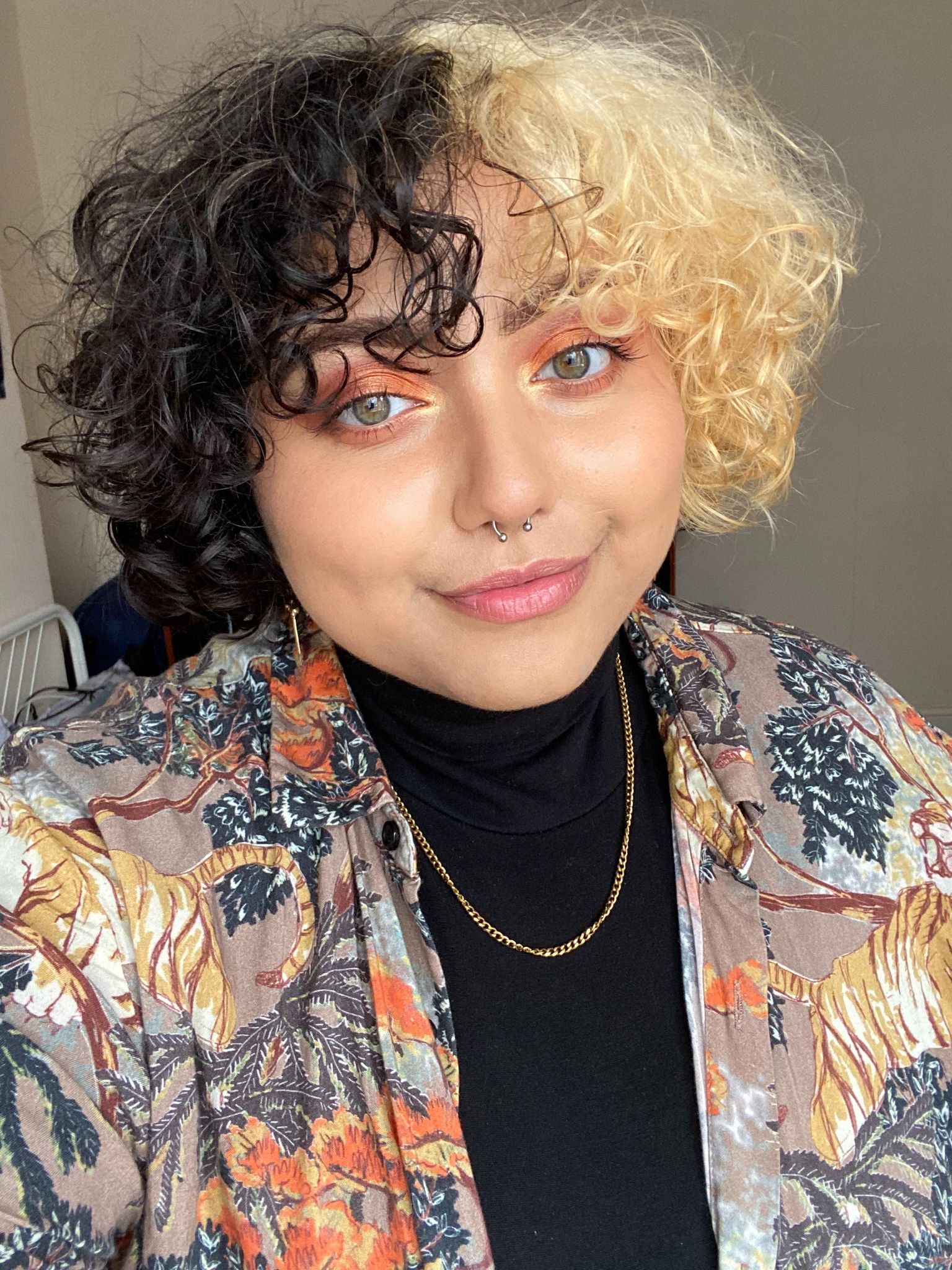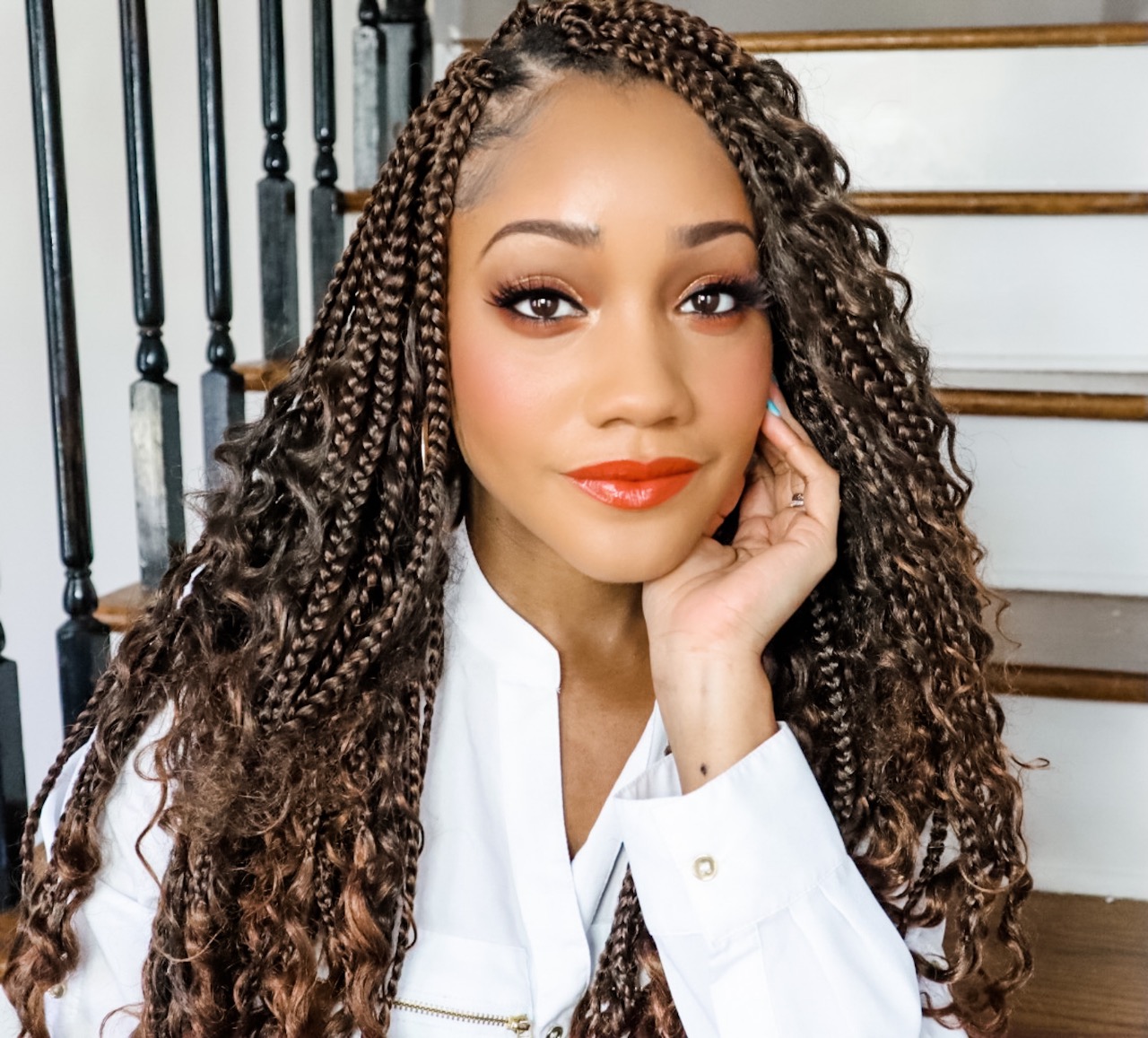National Poetry Month Contest Winner 2021: Avalon Felice Lee
National Poetry Month Contest Winner 2021
Avalon Felice LeeJudging poetry is ineffably difficult – there are so many ways to share an experience in language, and how that sharing affects a reader – emotionally, intellectually, as well as through the magically osmotic process that we poets often recognize but cannot really explain – are dependent on so many factors. I’m continually amazed by the seemingly endless tools & choices that poets bring to their craft, from the shape of their poems to the variety of line endings, to the voices that animate those lines, the choices about language. I was drawn to each of the poems because of the way the poets shaped their work as the perfect vehicle for their message.
Our winner is Avalon Felice Lee’s “Gershwin & Sons” – the poem unfolds as a consideration of immigration, wrestling with pressures of assimilation, anti-Asian hate crimes, the imagery of America writ large, and all juxtaposed with the story of another immigrant, George Gershwin – now known for his music, but his biography eclipsed. The percussiveness of this poem. Like the way we forget that a piano makes its music with hammers. Sharp lines, riddled with pinpricks, consonance and sibilance, tearing holes in the middle of utterances and perceptions.
Our short list of Honorable Mentions should be called Extraordinary Mentions. Sara Maher’s “goddess bless the USA” wants to be read aloud, experimenting with breath, alternating cadences, and varying speeds; it belongs both on and off the page to catch its nuances. Angelita Hampton uses allusions and quiet talk in “Capitol Offense” – how loud those moments. Mallika Khan’s “Queer Crucifixion” (an Editor’s Pick) depicts the speaker’s queer as a tangible thing, held in hands, kept hidden or safe, a thing that mother’s hands hold in a language of squeeze. In “burn” by Deborah Pless, a memory of being fourteen, risking death to learn survival, like other unremembered histories that make us. “Ashes to Ashes” by Laya Reddy is a disjointed dream of a poem, where everything is both familiar and completely unsettled. I was drawn, finally, to those short declarations – the way they speak to maybe-losses, to maybe-survival. The poem ends with “Sister, sister. I still. Lazarus walks again.”
I still. After this long year of 2020, we still (both meanings of that). In all these poems, images reach across some divide we’ve noted and noticed, attempting contact. Please read these missives from this April, from this last year – from this space where poets make this world out of what they’ve been given. Thank you (each of you who shared your words) for holding space with us.
—C. Kubasta, Editor, BMP Voices Poetry Month
Winner
“Gershwin & Sons” by Avalon Felice Lee
“Gershwin & Sons”
by Avalon Felice Lee
A tooth
scrapes Gershwin
off vinyl.
Maybe this time
these eyes
will inherit
the blues.
See, I crawled
the wrong ocean
to reach
this glittering
country where even
your sun
is blond
and thoroughly
American.
Bandolier
-striped flag,
bullets
to fatten
the westward
tumor.
America
aim sure and
let one sing
a spangled
anthem
into my ready
mouth,
let it carve
a rod
of starlight through
the temporal
lobe so that
my before
bleeds out:
Cantonese
by the pint.
Teach
these arteries
the alphabet
each letter
a fraction
of your liberty
and mine.
Oh, America
a truth
forgets itself
by us
forgetting.
Yet your sons
remind us
in every time
our heritage
is bastardized
into a disease.
In a brick
bursting
the glass
of the uptown
herbal shop.
The hands
that show
an elder
the taste
of asphalt.
As if to say,
Understand
you are here
but not hers
not anglicized
into a golden son.
Only an orphan
with no homeland
still spinning
on a record
in the Pacific.
A blues
away.

Avalon Felice Lee is an Asian American Californian. Her work is published or forthcoming in Kissing Dynamite, JUST POETRY, Right Hand Pointing, Bluefire, Plum Recruit Mag, and elsewhere. She has been recognized by Scholastic Writing Awards, Leyla Beban Young Writers Foundation, National Poetry Quarterly, The Lumiere Review, and Ringling, among others. You can find her and her kitten, Esky, on Instagram at @avalonfelicelee.
Short List
“goddess bless the USA” by Sara Maher
“Capitol Offense” by Angelita Hampton
“Queer Crucifixion” by Mallika Khan
“burn” by Deborah Pless
“Ashes to Ashes” by Laya Reddy
“goddess bless the USA”
by Sara Maher
Not to be dramatic but this year carved me open and
used my organs as fairy lights and red flags flaming in
the moonlight before the plague I thought I knew what
people meant to me before but when I morphed into an
island I sunk cocooned as underwater volcano submarine
fissure and I caught Stockholm syndrome with my own
meat cleaver brain and I forgot
got so busy saving myself taking notes seeking clues
interrogating the yellow wallpaper and my bathroom
mirror I forgot that the-that the fire spread to me because
goddammit I’m an American and the soulless bastard of a
year threw a match in the US of A’s light fuse and woo look
so beautiful there’s a tire fire outside but baby I’ll be your knight
in shining armor coming up on a stallion tits out hair down no guts
all glory blood fleeing my severed flesh to find a new home just to
make room for you my baby angel darling I’ll rescue you US of A I’ll
dip you down and give you surprise butterfly kisses and there may be
a tire fire but me and the rest of the ghouls last year nurtured will put it
out with our own bodies our plasma a potassium bicarbonate fire extinguisher
and not to be dramatic but this last year incarcerated incinerated took everything
from me and we’ve got nothing to lose and even less to prove so love me America
I’ll be your heroine your heroin your anti-heroin chic I’ll be your brown woman savior
your mistress and I’ll burn patchouli sage incense in the steaming graveyards and we’ll
toast gold champagne scorching down my throat dribbling down onto the dirt and I’ll say
I love you America and I’ll look you deep in your red white blue eyes and you’ll look at my
tits and you’ll swear to goddess to me that next time next year will be different that you’ll really
change and that’s because I and the other ghouls saved you and for a split lone brilliant second
I’ll believe you
Sara Maher is a writer from Georgia. She pulls from her experiences as a woman who grew up in a Muslim enclave in a small town in the deep South. Sara has written about masculinity, technology, and ethics in various academic outlets.
In her free time, Sara likes to read, hike, and seek the silver linings. You can find her on Instagram at @sarsoura_isdoingherbest.
“Capitol Offense”
by Angelita Hampton
Twice, she said on the phone this evening hell in a handbasket what is the world coming to? she sounded tired. but from standing still, out of breath without exertion. she told me I didn't want to know: I suppose you didn't hear what's going on in Washington today? I hadn't. I was usually the last to hear. the world reverberates too loudly, echoing inside me like shouting canyons firing into the darkness. I stayed out of the world for days. but still, I know it. it does not hide or change. it's not even as slick as the devil or half as smooth. and my mother knows me. her thinking I shouldn't know tells me it is something breakable. something fragile. this side is not up anymore and everything is in pieces now. she said my sister had been crying. my brother had come to the house, she would have to move her car into the driveway later. yesterday I started a poem about Martin, Malcolm, and Medgar. the air was already cold in the coincidence of winter. I had been thinking about carports. and stalking. shooting. podiums, balconies and slow driving Cadillacs making widows. rifles and casings. skulking off.

Angelita Hampton is a writer, visual artist, activist, sister, and daughter. Her undergraduate studies in Psychology and African American Studies at Earlham College and graduate studies at The Ohio State University, along with her time living abroad in Mexico, deeply inform her creative work. She identifies as a Black queer feminist revolutionary inspired by and dedicated to social justice.
Angelita is an Indianapolis native who enjoys the arts, nature, and maintaining close ties to family. She has self-published several books of poetry in addition to having poems published in Rigorous, Bay Windows, RagShock, and Coffee People Zine.
“Queer Crucifixion”
by Mallika Khan
I do not know loss, but I have lost to God.
Several times. Never by choice. Now, I hold
my Queer under my palm. It squeezes
itself between my fingers, clawing back
across the dining table. A spidery hand
slowly making its way to my mum.
I cannot let my Queer crucify my mum.
We interlock fingers around the table. Thank God
for the meal. Pray for my family to come back
to me instead. I ache from reaching out my hand,
knowing that my aunty will not hold
it anymore. Another death. The grief squeezes
my chest through my ribcage. She squeezes
her eyes shut, quickly. Before my mum
finds out. My gaze pierces my impure hand,
knowing all the perverse love it can hold
when I am with Her. Perhaps, I could ask God
why my Queer carries a hammer and nails. My back
should be hunched over. Instead, I lean back
to find more than a chair. Shame that squeezes
me into a tight embrace. How does it hold
me closer than my family ever would? Surely God
could reconsider this sin. I know my mum
carries my cross behind her. Her hand
covered in splinters. The same weary hand
preparing peace offerings. Meals to bring back
the relatives that denied me thrice for God.
For they don’t know me at all. I watch my mum
ask for mercy with every spoonful of rice. Squeezes
leftover grace into plastic containers for them to hold
onto as they pass over. She tells me to hold
my tongue when they speak death. Her hand
clutches my Queer firmly as they leave. Mum,
I wish I wasn’t something to fight for. It squeezes
out of me, a thought. That turning her back
meant they died for her too. Forgive me, God.
Truth is, I fear I will lose my mum to God
every day. But for now, I hold her hand
while we pray. She always squeezes back.

Mallika Khan is a 22 year-old queer Pakistani poet and artist based in Bristol. They study Psychology with Criminology at the University of the West of England. They believe that where sorrow lies, resilience and strength is always there too; and this is the main focus of their work. Mallika’s poetry has received recognition from Bristol Women’s Voice and Art Within The Cracks, however, this is their debut poetry publication.
More information on Mallika’s work can be found on their website at: https://mallikakhan.wixsite.com/studio.
“burn”
by Deborah Pless
there’s a curve in the road by Tony Tally’s Auto Towing
where I stood, fourteen and full of rage,
and flung myself between the passing cars
a low-cost form of self-immolation
the kids at school
they
where you going crazy bitch
threw food at my skirt when I passed in the hall
and I burst into tears at the thought
that no one would remember the solemn faces I saw in our history book
in a hundred thousand years
because
death is a distant country
and forgetfulness is a gift
breatheonetwo – run
run like your life depends on it because
the cars aren’t stopping and
no one will be there to identify the body
out back by Tony Tally’s
see the headlights, spot the curve, run as it crests the hill
and for the glorious moment know
you have survived
Deborah Pless lives in rural Western Washington. Her work has previously appeared in Kindred Magazine, quiet, The Canopy Review, and MTSU’s Shift, among others.
“Ashes to Ashes”
by Laya Reddy
The grand piano fell on the street. I was pushed down.
I got up. I knew fists. The meat of them.
Slow-roasting. I died slowly.
I breathed again. A man had crashed his car. They had stolen
my sister. She had flown away. Scars as anklets.
Lacerations for bracelets. They beat me down. I hobbled
back up. A child walked into the traffic. Quiet massacre.
Grandmother sleeps. She is crescent moon. Fetus
curled up in waiting. Quiet mouth and loud eyes on a still body.
Wake up. I go down the stairs. Sirens call me outside.
Tornado says enter. My feet are in cement. Leap now.
Brother’s hand circles my wrist. I close the door. Hold my peace.
Ghost enters through the back door. Woman says she knows me.
We have small faces. I let her in. Kitchen trembles softly.
My body is seizing. She grasps the inside of my elbow.
Sister, sister. I still. Lazarus walks again.
Laya Reddy is a South Asian writer and high school senior from the Northern Suburbs of Chicago. Her writing has been recognized by the National Scholastic Arts and Writing Awards and the Adroit Journal. Her poems have been published by the Live Poets Society of New Jersey, Canvas Literary Journal, elementia literary magazine, and more. She enjoys experimental cooking and acrylic painting in her free time.
















Recent Comments